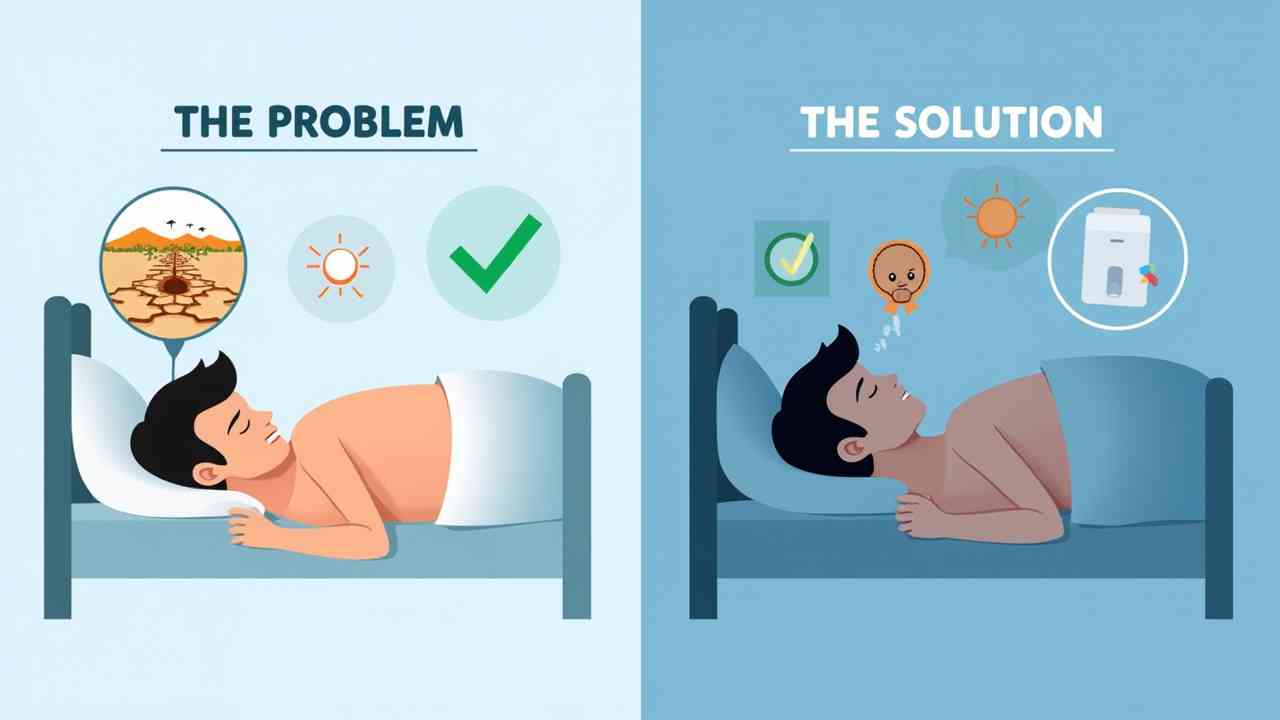
👄 What Causes Extremely Dry Mouth While Sleeping? A Doctor's Guide
👄 A Doctor's Guide: Why Do I Have Extremely Dry Mouth While Sleeping? 👄
Waking up in the middle of the night with a mouth that feels like a dry, sticky piece of cotton is an incredibly uncomfortable feeling. This condition, known medically as xerostomia, is more than just an annoyance. A chronic dry mouth while sleeping can be a sign of an underlying issue. It can also be bad for your dental health, as saliva is crucial for fighting bacteria and preventing cavities.
This guide will explain the most common causes for this frustrating problem. We will also cover the simple, effective strategies you can use to find relief. Let's get into the causes. ✅
🤔 First, What is the #1 Most Common Cause?
The single biggest reason for sleeping with a dry mouth is mouth breathing. Your nose is a brilliant filter and humidifier. When you breathe through your nose, the air is warmed and moistened. When you breathe through your mouth for eight hours, the constant airflow acts like a fan, evaporating all the protective saliva and leaving your mouth completely dry.
The next logical question is, "Why am I breathing through my mouth?" This is usually due to nasal obstruction:
- Nasal Congestion: This is the most frequent culprit. Allergies, a cold, or a sinus infection can block your nasal passages, forcing your body to use its backup system: your mouth.
- Structural Issues: A deviated septum or nasal polyps can also physically block your airway.
- Sleeping Position: Sleeping on your back can sometimes cause your jaw to slacken and your mouth to fall open.
- What Are the Other Major Causes?
If you are not congested, your dry mouth is likely a side effect of something else. These are the other common causes.
1. Are You Taking Certain Medications?
This is a very common and often overlooked cause. Hundreds of popular over-the-counter and prescription medications list "dry mouth" as a primary side effect. These drugs can reduce your body's saliva production. Common culprits include:
- Antihistamines and decongestants
- Antidepressants and anxiety medications
- Some blood pressure medications
- Diuretics
2. Are You Dehydrated?
This is a simple one. If you do not drink enough water during the day, your body will not have enough fluid to produce an adequate amount of saliva at night. This is made much worse by drinking alcohol or caffeine before bed, as both are diuretics and can lead to dehydration.
3. Could it be an Underlying Medical Condition?
If your dry mouth is chronic and not related to the issues above, you must see a doctor. It can be a symptom of a few serious medical conditions, such as:
- Sjögren's Syndrome: An autoimmune disorder that attacks the body's moisture-producing glands, including the salivary glands.
- Diabetes: High blood sugar can cause frequent urination and dehydration, leading to dry mouth.
✅ What Are the Best Ways to Find Relief?
You can find relief by tackling the root cause. Here are the most effective strategies:
1. Run a Humidifier: This is the best solution for dry air. Running a cool-mist humidifier in your bedroom at night adds moisture to the air you are breathing. This is especially helpful during the dry air of the winter months. 💧
2. Treat Your Congestion: If you are stuffed up, treat the problem. A saline nasal spray before bed can help to clear your passages. An external nasal strip can also help to physically open your nostrils, making nasal breathing easier.
3. Hydrate Smart: Drink plenty of water throughout the day. Stop drinking caffeine and alcohol several hours before you plan to sleep.
4. Talk to Your Doctor: If you suspect your medication is the cause, talk to your doctor. They may be able to adjust your dosage or switch you to a different medication. 🩺